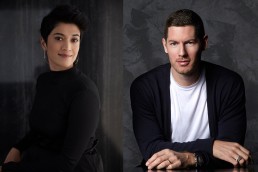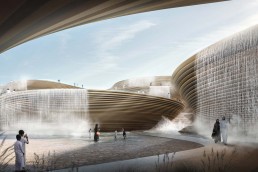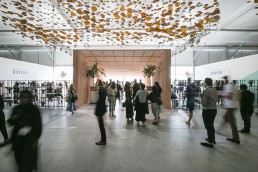The pandemic has challenged long-established models of societal interaction, placing new demands on our built environment and spotlighting issues that need our attention.
Highlighting the MEA design industry’s response to the shifting attitudes towards how we will engage with our surroundings and the evolving concerns of our world, Downtown Design’s multi-media exhibition, ‘The Shape of Things to Come’, showcased exploratory work from Middle East-based architects and interior designers as they conceptualised how we might live, work and play in a post-pandemic world.
With projects ranging from a house designed for isolation, a new approach to envisioning places of worship and malls re-imagined as cultural hubs of the future, to exploring how tech can propel design meaningfully and addressing the scope of culture and locality in providing forward-looking solutions, the selected proposals – listed below – demonstrate the breadth and expertise of the region’s creative talent.
Dubai-based architect and designer Agata Kurzela – founder of Agata Kurzela Studio – was tasked with conceiving the exhibition, staged at Dubai Design District (d3) during Dubai Design Week. “Both in its concept and design, the exhibition provides a fluid framework that demonstrates the distinctive and polyphonic chorus of original voices in this part of the world, effectively dismantling an outdated
stereotype of it being an echo chamber of global trends,” she concludes.

Gaia Floating Resort, Ama
This floating vessel-like project explores a new type of hospitality experience, testing the potential of emerging construction technologies to create a sustainable and innovative building.
A synthesis of innovation and sustainability through design, the project addresses pressing concerns of climate change and the potential of circular design economies without compromising on end-user experience or client aspirations.
Floating on the water with a lightweight prefabricated structure built from boat technology composites, the hotel uses active and passive means to limit its carbon footprint.
Made from sequestered carbon meanwhile, the guest pods are hoisted on a base supported by posts built from an emerging technology of 3D printed coral that can support biodiversity and nurture an ecosystem that will allow for marine life to feed and flourish underneath.

Morox, Brand Creative
The pandemic has driven tourists to reconsider what they look for in a typical resort experience. Now more than ever, there is a need and craving for an authentic localised and intuitive experience, combined with low touch, high-tech amenities. These contactless creature comforts could well be of utmost importance to hospitality designers in the future.
The Morox concept reimagines culture within the context of nature, but without any of the typical pastiche references. According to Brand Creative, Morocco – along with the majority of the Middle East – is all too often misrepresented by cultural clichés. They believe hospitality projects going forward must rebrand the region and convey authentic narratives through highly considered conceptual thinking.
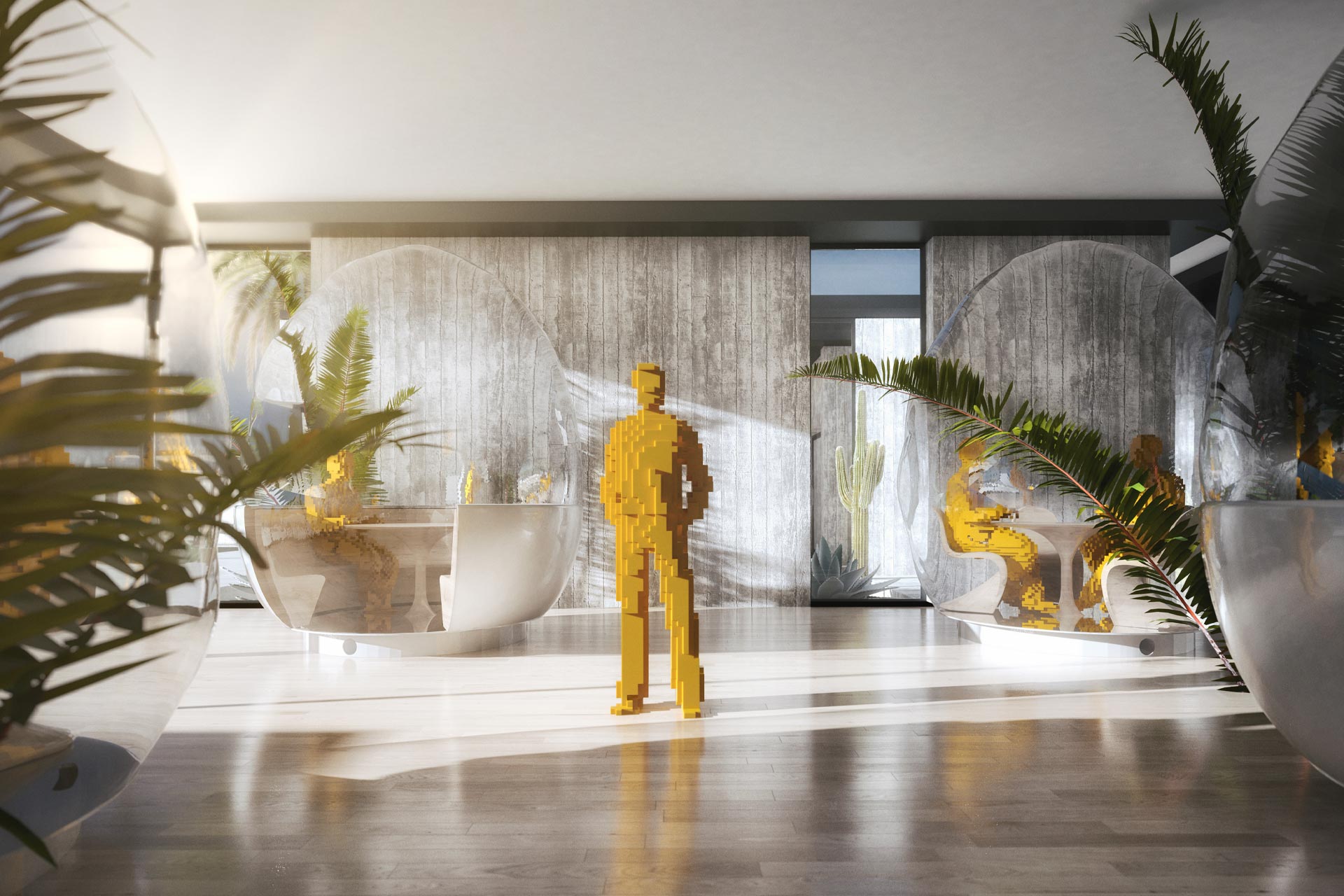
Jellybean, Studio Toggle
Since masks are not a realistic option, restaurants around the world are being forced to come up with temporary solutions – often ill-designed and ineffective – to comply with increasingly restrictive guidelines.
Jellybean is a soft approach to the hard issues of social distancing. Each table is enveloped by an inflatable bean-like pod formed from an eco-friendly bio resin, creating a transmission-free environment.
With a membrane structured in the tradition of hot-air balloons, the pod is inflated through filters attached to its base and receives formal stability from creased seams that separate its unfolded tectonic geometry and negate the need for hard armature.
With a flat base, the pod can adapt to a multitude of furniture layouts, offering maximum flexibility to restaurant owners. Easy to hygienically sterilise and transport, Jellybean offers an adaptive solution to a hard-hit F&B industry.
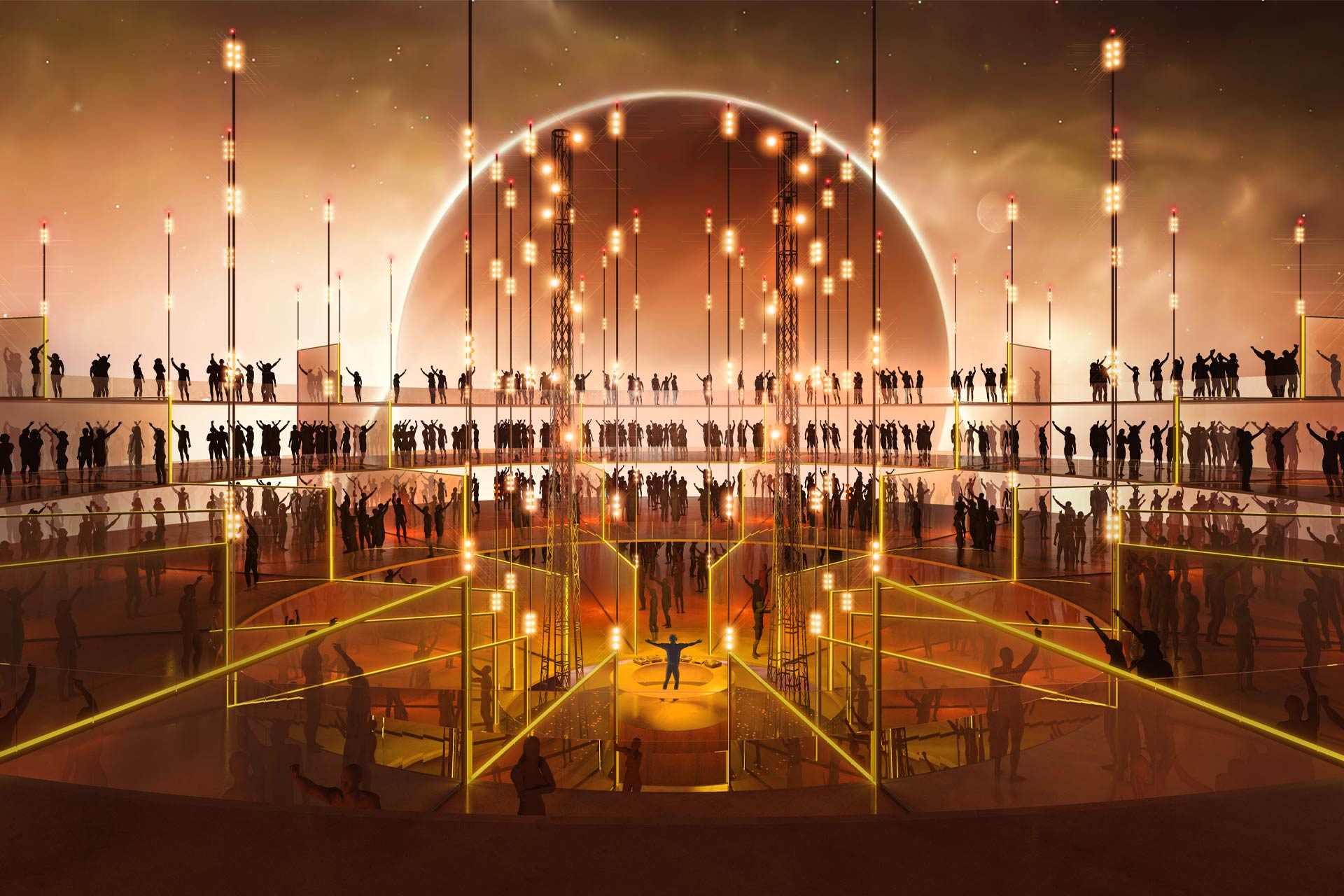
Evolve, Rabih Geha Architects
“Post Covid-19, we can still club. We will just find a way to do it differently,” say Rabih Geha Architects.
Clubbing is a multi-sensory experience that involves tactile, visual and auditory stimulation. Closeness, the defining features of crowds, is usually at the heart of the experience.
In light of the Covid-19 pandemic, we have somewhat deprived our sense of touch. There is now a pressing need to redefine the concept of ‘crowd’. People’s natural behaviour remains the same, but has simultaneously changed a lot. We still gather, but in smaller groups; we still greet, but minimise physical contact.
Evolve explores the reshaping of nightlife by creating a new experience that can preserve the need to go out in the midst of a new set of living conditions. Through a layered, concentric layout that is focused on three main factors: space, people and entertainment, crowds can party together while keeping their distance.
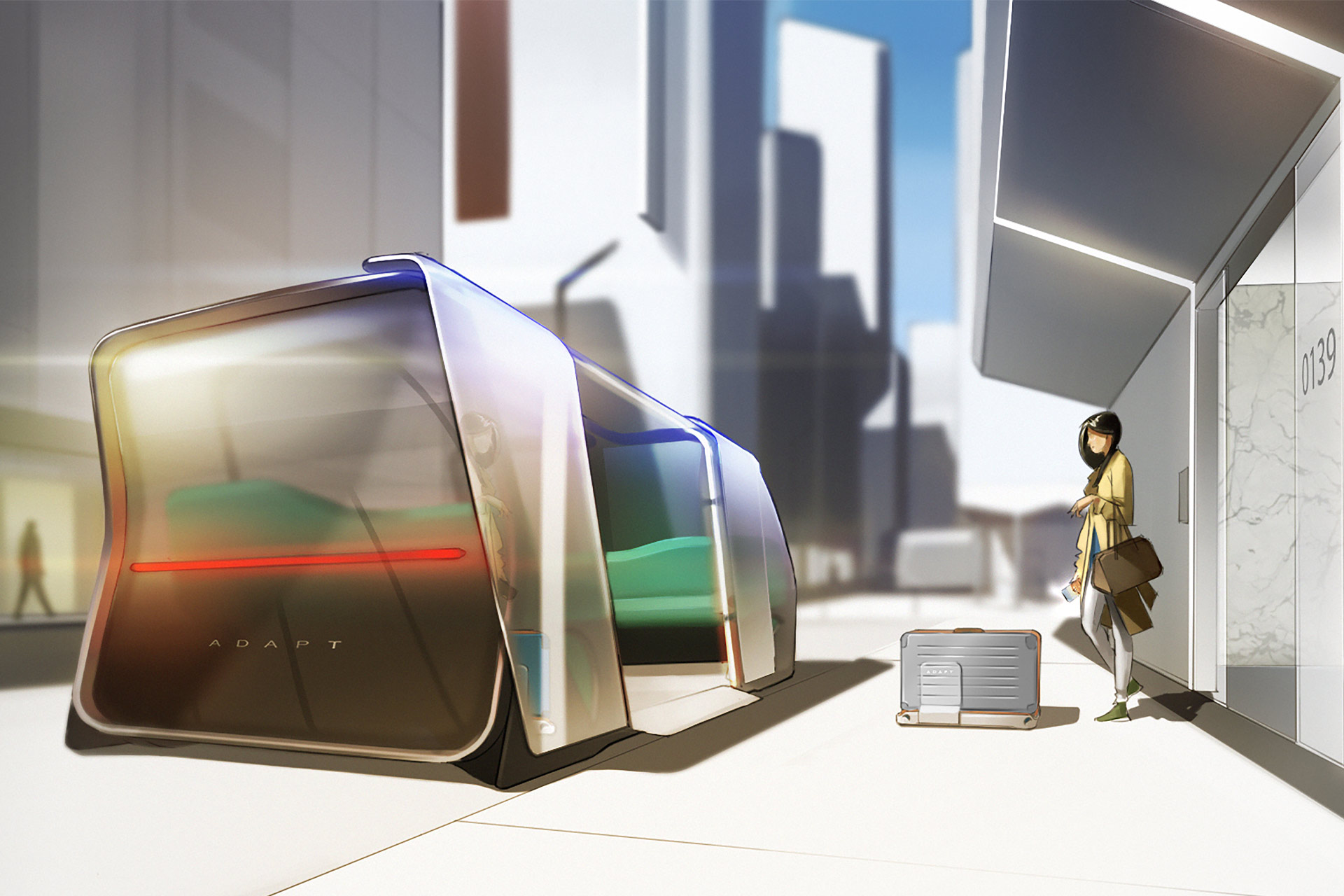
Rihla, JPA Design
Amidst a time of global fear and uncertainty initiated by coronavirus, an unanticipated re-connection with home comfort and safety implores the daunting question: will we risk travelling and sharing our immediate space with strangers in order to encounter foreign destinations again?
Travel industry experts have predicted for many years that technological advancement will depict the future and that our destiny can ultimately be controlled by a single user Interface. More so following the events of this year, the demand for a contactless environment will need to be fulfilled with hospitality venues forced to adopt mandatory measures and swift implementation.
Utilising modern technologies, Rihla goes beyond satisfying immediate and cosmetic wellbeing necessities.
Controlled by the user for a unique guest experience, but tailored by collaborative hospitality partners to create an entirely new and innovative revenue generating hospitality trend for the future, it offers a glimpse into how our travel experience will evolve.
Related Posts
9 November 2020
Downtown Design premiers virtual talks
22 October 2020
Downtown Design presents The Shape of Things to Come
16 November 2019
